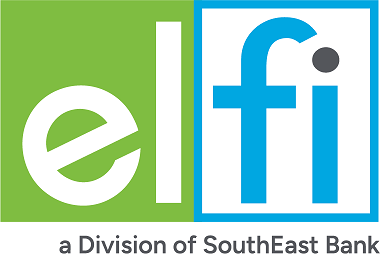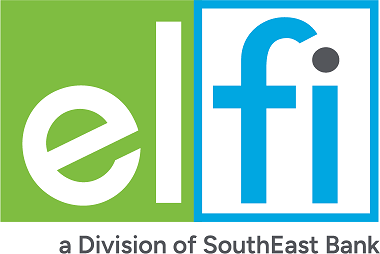Graduate school can be expensive, and most students don’t have the savings to cover the full cost of tuition, fees, and living expenses. That’s why loans are common among graduate students who often rely on them to make their education possible. Whether you’re studying law, medicine, or business, the costs can add up quickly, and having access to the right financial support is essential.
Choosing the right loan is one of the most important decisions you’ll make for your financial future. The loan you pick should match your budget and goals, so you don’t end up with payments you can’t afford after graduating. Federal student loans usually offer fixed interest rates and flexible repayment plans, which is a big help if you’re just starting out in your career. Private student loans may give you more options but often come with fewer protections, so it’s important to compare carefully. By doing your research and planning, you’ll make decisions that set you up for success both during and after graduate school.
Graduate Student Loans Options
When it comes to paying for graduate school, you usually have two main options for student loans: federal loans and private loans. Both have their strengths, and understanding the differences can help you decide which one is the best fit for your situation.
Federal Student Loans
Federal student loans are offered by the government and are a popular choice for graduate students. Here are the main types you should know about:
Direct Unsubsidized Loans
These loans are available to most graduate students, regardless of financial need. They have fixed interest rates, meaning the rate won’t change over time. However, you’re responsible for the interest that accrues while you’re in school.
Direct PLUS Loans
Graduate PLUS Loans allow you to borrow up to the full cost of attendance, minus other financial aid you’ve received. These loans require a credit check, but they’re still considered federal loans and come with the same protections.
Key Benefits of Federal Student Loans:
Fixed Interest Rates
Federal student loans have consistent interest rates that don’t fluctuate, making it easier to plan for repayment.
Flexible Repayment Plans
Federal student loans come with options like income-driven repayment plans, which adjust your monthly payments based on your income and family size.
Forgiveness Programs
Some federal student loans may qualify for forgiveness programs, like Public Service Loan Forgiveness (PSLF). These programs erase some or all of your remaining loan balance if you meet certain criteria, such as working in public service and making 120 qualified payments.
Private Student Loans
Private student loans are offered by banks, credit unions, or online lenders and work differently than federal loans. Unlike federal loans, private loans typically rely on your credit score or the creditworthiness of a cosigner to determine eligibility and interest rates.
Key Benefits of Private Loans:
Potentially Lower Interest Rates
If you or your cosigner has excellent credit, private loans can sometimes offer lower interest rates than federal loans.
When Private Student Loans Might Be a Better Fit:
Private student loans may be a good choice if you’ve reached your federal student loan limits and still need more money for school. They can also work well if you have high creditworthiness and can qualify for a lower interest rate, helping to reduce the overall cost of your loan.
When deciding between federal and private loans, think about your financial needs, career plans, and how much debt you’re comfortable taking on. By carefully comparing your options, you can choose the right loans to support your professional education and long-term financial goals.
Key Factors to Consider When Choosing a Student Loan
When selecting the best graduate student loan for your needs, there are a few key factors to keep in mind to make an informed decision:
Interest Rates (Fixed vs. Variable)
Loans typically come with either fixed or variable interest rates. Fixed rates stay the same throughout the life of the loan, making monthly payments predictable. Variable rates, on the other hand, can change over time and may start lower but could rise later. Federal student loans only offer fixed rates. Consider your comfort level with risk and your repayment timeline when choosing between the two.
Loan Terms (Repayment Length, Grace Periods)
Different loans offer different repayment lengths, which affect how much you pay each month. A shorter term means higher monthly payments, but less interest paid overall. A longer term spreads out payments but costs more in the long run. Also, look into grace periods—some loans give you time after graduation before you need to start paying back, giving you flexibility as you transition into your career.
Fees (Origination Fees, Prepayment Penalties)
Some loans charge origination fees, which are upfront costs added when your loan is issued. For example, all federal student loans have origination fees. Prepayment penalties, on the other hand, are fees for paying off your loan early. Make sure to read the fine print and choose options with the lowest or no fees to save money.
Credit Requirements (Impact of Credit Score on Private Loans)
For private student loans, your credit score plays a big role in determining eligibility and interest rates. If your credit score is strong—or if you have a cosigner with solid credit—you’re more likely to secure a loan with favorable terms. Federal Direct loans generally don’t consider credit scores, making them a good option for those with limited credit history. However, Direct PLUS Loans do run a credit check.
Loan Limits (Federal Caps vs. Private Lender Flexibility)
Federal Direct loans come with borrowing limits, which might not cover the full cost of your education. Private loans, however, often offer more flexibility with higher borrowing limits. Private student loans will allow you to borrow up to your cost of attendance minus all other aid received, if you qualify for a loan at that amount. Understanding how much you need to borrow and what each type of loan can provide will help you choose the right option.
Customer Service and Borrower Perks (Autopay Discounts, Forbearance Options)
Some lenders offer perks like autopay discounts, which reduce your interest rate when you set up automatic payments, or forbearance options, which allow you to temporarily pause payments if you face financial difficulties. Good customer service is also essential, especially if you need help managing your loan during repayment.
By focusing on these factors, you can pick a loan that fits your financial situation and long-term goals while minimizing stress during your graduate education.
Tips for Applying for Graduate Student Loans
Applying for graduate student loans can be simple, by following these tips can you make the process smooth and set yourself up for success.
Complete the FAFSA Early
The Free Application for Federal Student Aid (FAFSA®) is your gateway to federal loans, work-study, and grants. Even if you plan to use private loans, filling out the FAFSA early ensures you're eligible for any federal aid first—which often has better terms like lower interest rates or more flexible repayment plans. Don’t wait until the last minute, as some aid is distributed on a first-come, first-served basis.
Compare Private Student Loan Options
Private student loans vary a lot between lenders in terms of interest rates, repayment terms, and perks, so be sure to shop around. Use online loan comparison tools or calculators to evaluate your options side-by-side. Look for lenders that offer competitive rates, flexible repayment terms, and borrower benefits like autopay discounts or low fees.
Understand Your Credit Score
Your credit score plays a big role in the interest rate you’ll be offered on private loans. Before applying, check your credit score and aim to improve it if needed by paying off small debts, making on-time payments, and avoiding new credit inquiries. A better credit score could save you thousands of dollars over the life of your loan.
Gather Necessary Documentation
To make the application process go smoothly, make sure you have all the documents you’ll need. This typically includes your Social Security number, proof of income (or your co-signer’s, if needed), recent tax returns, and information about the school you're attending. Being prepared will save you time and help avoid delays in getting approved.
Read the Fine Print
Before signing on the dotted line, take time to carefully read all the details of your loan terms. It’s essential to understand exactly what you’re agreeing to. Pay close attention to the interest rate—whether it’s fixed or variable—and how payments might change over time. Look for any hidden fees, such as origination or late payment fees, that could add to your costs. You also want to review any borrower benefits the lender is offering, like cosigner release, or discharge options in cases of disability or death.
Understanding the repayment schedule is equally important, so you know when payments start and how long they’ll continue. Taking the time now to review the fine print can save you from surprises later. If anything seems unclear, don’t hesitate to ask your lender for clarification.


















